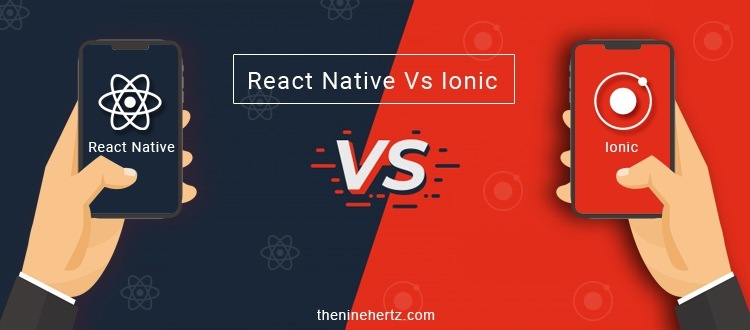Guide on Hybrid mobile app | What is the difference with native apps
![HYBRI
[elLi{= Che]
NAYS
Bennenerts com](https://contents.bebee.com/users/id/13585841/article/guide-on-hybrid-mobile-app-what-is-the-difference-with-native-apps/946aced2.jpg)
With the introduction of portable devices like smartphones and tablets, small programs known as ‘Apps' are seeing a rise every year. New and better apps with more productivity are releasing each day, and it is becoming increasingly difficult for developers to stand out amidst the crowd of apps providing similar functionality.
Adding to that is the confusion of choosing between Native apps and Hybrid apps. Here we explain what it is like to use to Hybrid mobile apps, what exactly they are and how they are different from native apps.
What are hybrid apps?
From a layman's point of view, hybrid apps are like any other app that you can install in your smartphone. They provide similar functions which a regular app provides. However, the difference lies in the fact that these apps are built on the technologies that are used to build websites.
Developers mostly create them based on HTML, CSS, and JavaScript. Hybrid apps use your smartphone's built-in WebView which you can think of as a browser-less window with internet support that you can lay out in full-screen mode. Using WebView gives hybrid apps the capability to use your device's services like accelerometer, camera, contacts, etc.
Read More: Everything About Cross-Platform Apps – Infographic
How to build Hybrid Apps?
As mentioned earlier, Hybrid apps are build using web development technologies like HTML or CSS and wok under WebView. With the increasing demand for Hybrid apps, the most common interface that Hybrid Apps are built on is Apache Cordova. This is a platform which can provide a consistent set of JavaScript APIs.
This makes the app take advantage of the devices' functionalities by using plug-ins. By that, the app has the permission to use your device's accelerometer, contacts, camera, proximity sensor, messaging and things like that.
Besides the plug-ins that are inbuilt, a host of other plug-ins are developed and supported by the developer community including the Apache Cordova Plugins Registry. HTML, CSS, and JavaScript come pre-installed through the tooling that is available through Apache Cordova to manipulate platform SDKs.
Most hybrid app developers use Command line interfaces to drive the tooling by Apache Cordova. Once built, the application can run flawlessly on any device. Programmers can use several IDEs like Visual Studio to increase functionality.
Why use Hybrid apps?
Developers find it slightly less difficult to develop a hybrid app. This is because they can use their existing knowledge of web development to create apps. They don't have to master the know-how of proprietary platforms like the programming languages and the SDKs given by the platform manufacturers.
For a mobile app development company, Hybrid apps could be more beneficial since one developer skilled in HTML, CSS and JavaScript could be enough for the purpose. For most intents, hybrid mobile app development requires the developers to work on more than one platform.
However, the catch here is, most platforms have a specific set of conditions and regulations in cases of web runtime or WebView which the developers have to have an idea about. This is particularly valid for Android whose caveats are not the same among the different versions.
What is more, several platforms might possess their unique functionalities which a developer might find handy. For those cases, developers might want to use a combination of plugins and platform-specific code. They can also use third-party web runtimes like Crosswalk which they can be implanted in the hybrid app.
Hybrid or Native?
- Being a developer, if you wish to target several platforms, Hybrid apps make it easier for you. This is because Hybrid apps use the device's WebView to display its contents.
However, if you want to work in a single domain, native is the way to go. However, suppose you are a developer who is hooked to vendor SDKs and platform-specific programming languages. In that case, you have to develop a native app essentially. If you are working on iOS, it is Objective C or Swift, and it is Java for Android.
- You have to distribute your Hybrid apps or native apps over an App Store. However, from the developer's point of view, Hybrid apps are more accessible to build. Since, with their existing skills, they can develop a website to provide app support.
- Generally, the idea is that websites cannot provide as much functionality when compared to apps as they cannot take advantage of the device's capabilities like camera, gyroscope sensor and things like that. Therefore, developers have to go the native or hybrid way.
That said, for graphically intensive tasks, native apps are better. Complex visual interactions are always going on in a game, and that's where the WebView fails to make the magic. Still, many solutions are there to make the hybrid applications usable. Things like HTML5 Canvas and WebGL have immense potential to help you develop graphically intensive applications or games.
- Hybrid apps are not the one-stop solution for app development. You might find that the plug-ins required for accessing the device's features are either outdated, unreliable or missing. That makes the situation very bad, mainly if you have sorted out the coding part.
You might have to remove some application functionalities potentially. Alternatively, you have to create the plugins yourself which is a tough task.
- Suppose, you have the app that relies on several native features. Alternatively, might be an app which is mostly performance oriented like a game or a benchmark app. Then you have to rely on the native side of things.
However, to make life simpler for developers, a lot of modern-day tools like Xcode and Android Studio might be useful. These are also a lot more understandable.
- These were some of the points of how you can choose between native and hybrid apps and how they stand against each other. Developers should keep in mind that, if things like fluidity and app load times are crucial for them, then they should build a native app. Whereas if you want to make the most out of the device's capabilities, Hybrid is the way to go.
Articles from Hemendra Singh
View blog
Did you know that the total downloads of PUBG hit · 200 million at the end of 2018? Also, it has 30 ...

Every successful company of the current era was a start-up venture at some point in time. These comp ...

When it comes to a comparison between the iOS and Android mobile framework it is very difficult to c ...
You may be interested in these jobs
-
Malayalam Voice process @ Chennai
4 days ago
CapTalent HR Bengaluru, India Full timeWe are looking Good English communication with Malayalam speaking skills .For more info contact HR Haritha @ · Process: Customer support Voice · (Malayalam with good communication in English). · Note : Work From Office · Location : Chennai (Mount Road) · Age: Both Male and Femal ...
-
Business Development Manager
4 days ago
Aertsen Modulars Hyderabad, India Full timeshould have knowledge in digital / Interior Sales & Marketing/presales/Lead Generating · must be dynamic and sales-target oriented, · must have good business analytical skills for client project requirements understanding, · should have a knowledge/experience in bidding and propo ...
-
Quantum Algorithm Developer Intern
5 days ago
Aristocrat Chennai, IndiaJob Title:Quantum Algorithm DeveloperIntern · Location:Headquarters Chennai India (Inpersonpreferred) · AboutUs: · AtAristocrat IT Solutions / Aristoverse we are at the cutting edge ofArtificial Intelligence and deep technology research. Ourcommitment is towards innovating and de ...



Comments